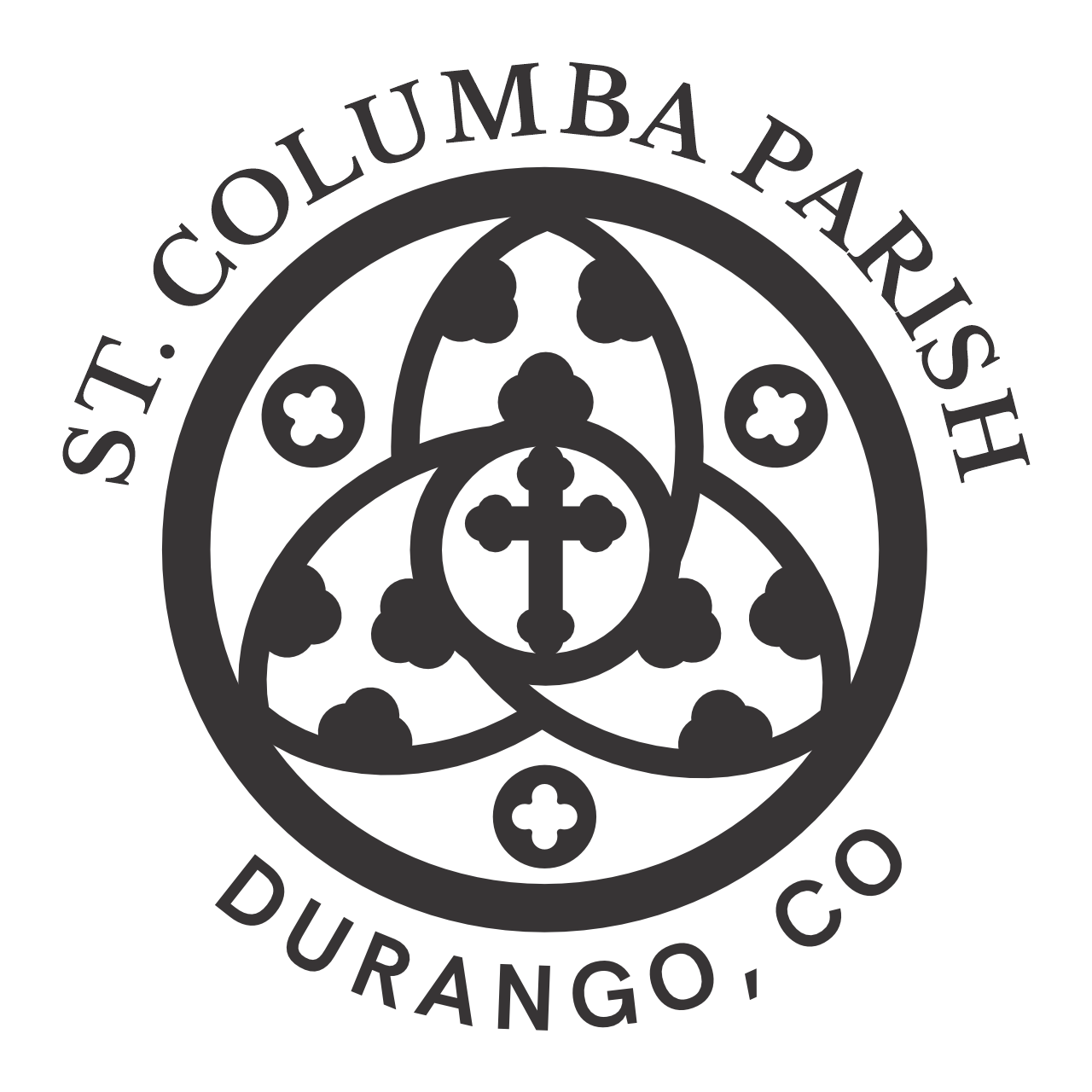ST. COLUMBA FUNERAL MINISTRY
The St. Columba Funeral Ministry wishes to accompany those who have lost a loved one and journey with the family through this time of grief and prayer. Once the family has set up a meeting with the parish priest, a funeral minister will join and assist the family in the selection of appropriate scripture readings, music and liturgical roles. The Vigil, Funeral Liturgy and Rite of Committal will be discussed and planned. Forms and resources will be available to assist in this process.
The funeral ministers can also coordinate and help provide a reception luncheon on the day of the funeral.
Pre-planning of one’s own funeral is encouraged. In so doing, one can have the peace of mind that their survivors will not have to make difficult decisions at a time when they are burdened with grief and other responsibilities. Materials are available to help with this planning process.
When do we call the parish?
When a loved one is seriously ill, call the parish office (970-247-0044) for pastoral and sacramental ministries of anointing of the sick, reconciliation, Eucharist.
When your loved one has passed away, call the parish immediately for a pastoral visit and to schedule a funeral planning meeting. Pastor, family and a funeral minister will meet to schedule and confirm the funeral date and time, and begin planning services.
A Catholic funeral is a threefold rite.
The Vigil is a time to first gather with the family, pray for the deceased, and share memories and eulogies. It can take different forms and be held in the Church or funeral home, usually the evening before the Funeral Mass.
At the Funeral Mass, “the community gathers with the family and friends of the deceased to give praise and thanks to God for Christ’s victory over sin and death, to commend the deceased to God’s tender mercy and compassion, and seek strength in the proclamation of the paschal mystery….” (OCF129)*
The Rite of Committal “is the final act of the community of faith in caring for the body of its deceased member. It may be celebrated at the grave, tomb, or crematorium.” (OCF204)*
All members of the parish community are called to be ministers of consolation and support to members who are suffering the loss of a loved one. The St. Columba Funeral Ministry is here to help.
For more information, see Frequently Asked Questions.
Contact Bonnie Simons bksimonsdurango@gmail.com,
Joan Ems joanems@yahoo.com, or
Joan Heil joanmarieheil@gmail.com.
*Order of Christian Funerals
Use the forms below to aid and assist in the funeral planning process.
Funeral Ministry Frequently Asked Questions
Why do we have Catholic funerals?
Christians celebrate the funeral rites to offer worship, praise and thanksgiving to God for the gift of life which has now been returned to God, the author of life and hope of the just. (OCF5)*
Who may have a Catholic funeral?
The Christian faithful, including catechumens, have a right to full ecclesiastical funeral rites. Funeral rites can be granted to baptized members of some non-Catholic churches in some circumstances.
Who officiates at the funeral?
The pastor of the deceased Christian holds the responsibility for the funeral rites. Another priest may be asked, in communication with the parish priest, to officiate. When no priest is available, deacons preside at funeral rites. When no priest or deacon is available for the vigil and related rites, or the rite of committal, a lay person presides.
Who should go to the funeral?
The responsibility for the ministry of consolation rests with the believing community. (OCF9)* Family, friends, coworkers and acquaintances of the deceased should be welcomed and embraced by the parish community who, with them, should actively participate in the celebration of the funeral rites. (OFC11)*
Is cremation allowed?
Cremation is permitted by the church (unless chosen for reasons contrary to Christian teaching). Cremated remains are to remain in one box or urn (not split or scattered). Cremains may be present at the funeral liturgy, but not required, and are to be buried in a grave or at sea, or interred in a vault. The cremated remains of a body should be treated with the same respect given to the human body from which they came.*
Can Catholics donate organs?
The act of donating organs and tissues is a great act of love and charity. This extends to transplants as well, as the Church has ruled that they are both morally and ethically acceptable.
What is policy regarding stipends?
Gift donations are welcome and may be given to St. Columba Church and St. Columba School. Funeral ministers can advise you about individual stipends.
*From the Sacramental Guidelines for the Order of Christian Funerals, Diocese of Pueblo
